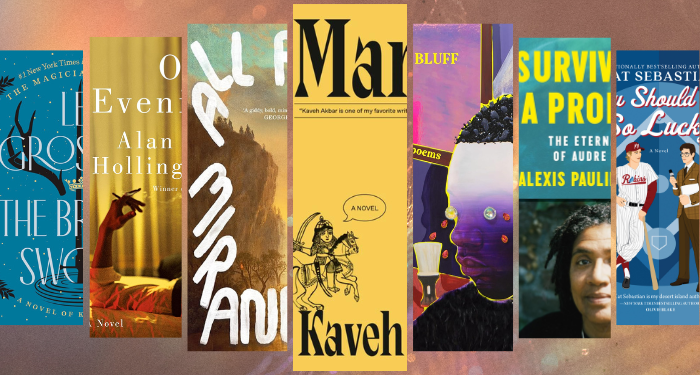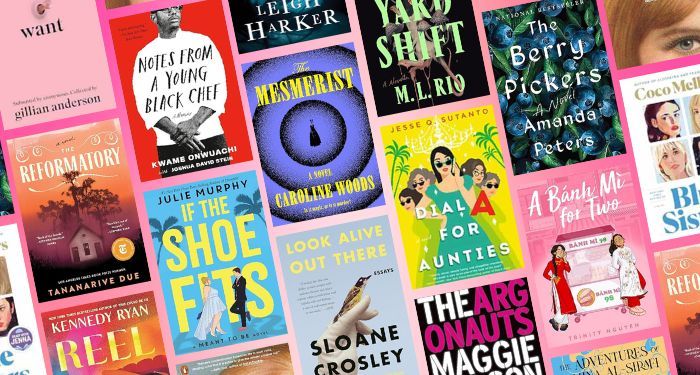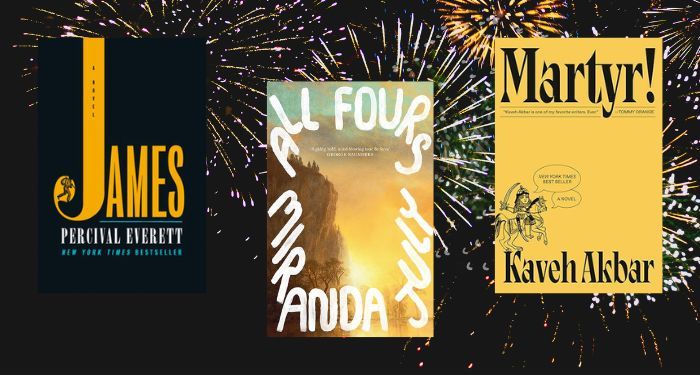Books that Break Your Heart and Put it Back Together Again
This content contains affiliate links. When you buy through these links, we may earn an affiliate commission.
I like to read books that make me cry on planes—apparently. I never plan it, but somehow I end up choosing the perfect, tear-duct-squeezing, emotionally-aching, devastating books on planes (throwback to a flight attendant literally having to ask me if I was okay after she found me with tears pouring down my cheeks because I’d had three glasses of red wine and then hit the end of The Book Thief by Markus Zusak).
The best books, in my opinion, will generally make me cry. That’s because the best books will have me so utterly immersed that when they hit their apex, I am fully and utterly invested. And whether it’s sad or happy, that usually means I’m going to cry.
So, needless to say, I’m in love with all 12 of these books that will break your heart and put it back together again. I can promise you they will, because it happened to me.
I should note that while memoirs and other nonfiction can certainly do this, I stuck to fiction for this list. I want you to be transported into another person’s mind, or story, or heart. I want you to be with them as they fall, break, or drown…and with them as they’re saved, survive, or persist.
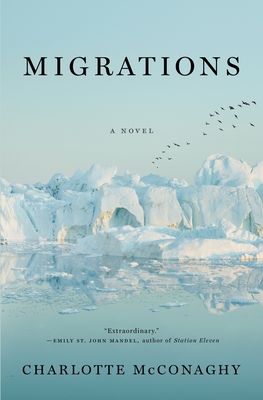

Migrations by Charlotte McConaghy
In this work of climate fiction, the world’s ecosystems are dying en masse. Amidst a flood of government regulations and ever-increasing extinctions, Franny leaves everything behind to pursue one singular goal: follow the final Arctic terns on their (likely) final migration, one of the longest and most epic in the world, to Antarctica. She convinces a fishing vessel to come along. What follows is a long, difficult journey full of cold water and tears. This was the first book I thought of when I saw this theme: this book tore me to pieces and stitched me back up, a gorgeous tribute to our dying world, in all its beauty and pain, accompanied by Franny’s own character history and arc.
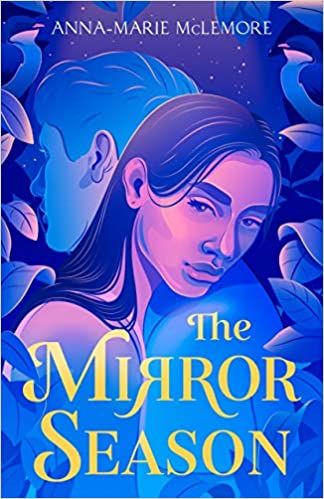

The Mirror Season by Anna-Marie McLemore
All her life, Ciela had the ability to instantly sense what people needed, which came in handy as she worked the counter at her family’s pastelería. But she loses her gift the night she is sexually assaulted at a party—instead, things become sharp as glass and cold around her. She finds the only thing that brings back her gift is helping Lock, another teen who was assaulted at the same party. This vivid story features inspiration from Hans Christian Andersen’s “The Snow Queen,” with great pansexual representation, and a rich, complex story of moving on and learning to live with sharp, difficult trauma.
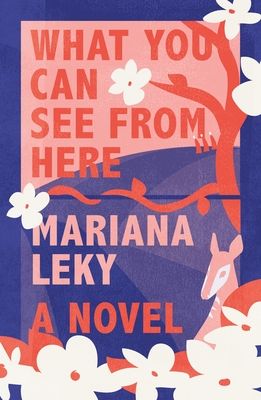

What You Can See from Here by Mariana Leky, translated by Tess Lewis
Luise’s grandmother always knows when someone in their small town is going to die: the presence of an okapi in her dreams tips her off. After one of her dreams, the entire town goes into a mild frenzy, wondering who will be next—dissolving into anxiety, making plans, and spurting out last-minute confessions of love. But death isn’t something that we can truly anticipate. This novel is, at its core, about death and grief, but interestingly, it’s one of the coziest reads I’ve encountered in recent years, because it’s also funny, absurd, and emotional, featuring a vivid cast of characters and a bittersweet core.
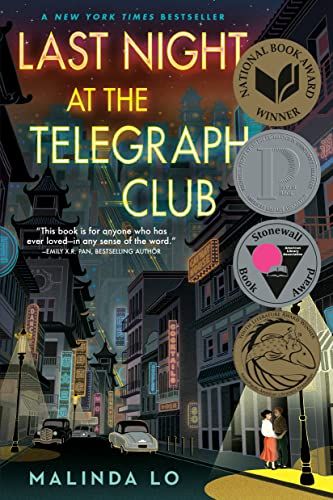

Last Night at the Telegraph Club by Malinda Lo
Okay, so this one will feature a lot of heartbreaking before it gets around to the putting together, but bear with me. Growing up in 1950s San Francisco in Chinatown, Lily always suspected she was different—but when her classmate Kath brings her to the Telegraph Club, and Lily sees a male impersonator perform, everything starts to make sense. She’s Asian and queer at the height of the communist scare. Who can she possibly tell? And is being true to herself worth the risk of the potential fallout? This historical fiction YA is brutal…but also romantic, suspenseful, and ultimately, empowering.
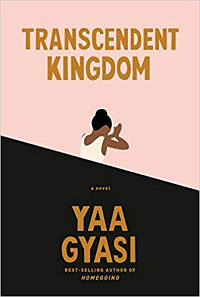

Transcendent Kingdom by Yaa Gyasi
When people ask her about herself, Gifty tends not to share much. Her life has been overflowing with pain at times, from her older brother’s overdose and death when she was young to her mother’s deep, dark depression. As a graduate student helping her mother through a crisis, she has to decide where to turn—to science, her hypotheses and experiments, or to the religion that she looked to in her childhood—for sustenance and understanding. It’s a rich, complex story about generational trauma, survival, and working through your pain. And meanwhile, it also examines the connections between science and religion, two realms that usually stand against each other in a strict binary.
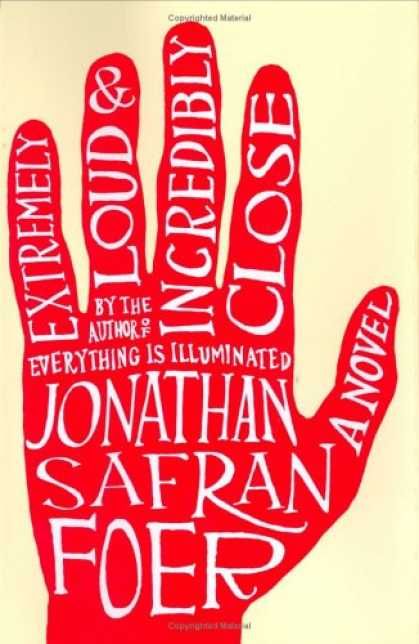

Extremely Loud & Incredibly Close by Jonathan Safran Foer
This book! It gets me every time. In this richly written book, young Oskar discovers a key in his father’s closet, years after his father died in 9/11. He goes on a quest to try and figure out what lock it opens, a quest that leads him across the five boroughs and into many stories that aren’t his own. Meanwhile, we get the stories of his grandparents, a story that takes us back into World War II. The one novel holds so many other stories, vivid and rich, and highlights the universality of suffering and tragedy—but also the universality of joy and connection, and of the tiniest moments of brilliance that pinpoint our everyday lives.
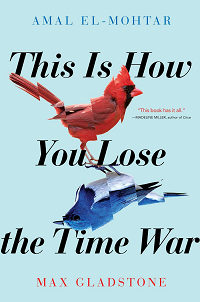

This is How You Lose the Time War by Amal El-Mohtar and Max Gladstone
Two rival secret agents, codenames Blue and Red, are battling all along the long, twisty braids of time in a sci-fi war between two very different societies: Agency, all tech and robotics, and Garden, an organic hive mind. They do their jobs very, very well. But then one spy discovers a letter, hidden deep within her mission. It’s a message from her rival—and as the two begin to talk back and forth, they start to think much less about the war they’re fighting, and much more about each other. This book of love letters full of purple prose and gorgeous landscapes and intricately created missions is a vivid and lovely book about choosing life over war.
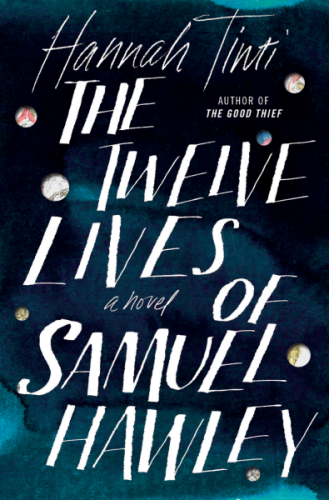

The Twelve Lives of Samuel Hawley by Hannah Tinti
Samuel Hawley is an anti-hero with a difficult, criminal, bullet-ridden past—and the text will tell us exactly how many bullets he’s been ridden with, and how—but the gruff man is turning over a new leaf now. He wants his daughter, Loo, to have something better than his rough life, and so they settle into the small town where her mother, Lily, grew up. There, he hopes to raise her tough but right. It’s a rich, well-written story about a father and daughter who both hold a lot of anger, a simultaneous thriller and coming-of-age story set in a town by the ocean where whales roam across the horizon.
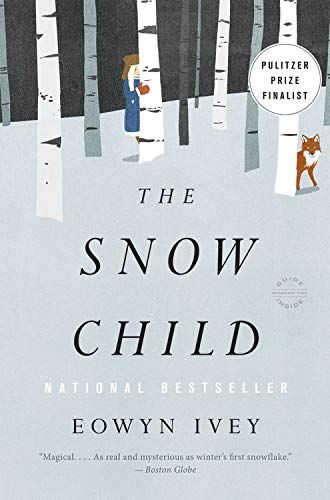

The Snow Child by Eowyn Ivey
In this retelling of a famous fairytale, Jack and Mabel are fairly recent homesteaders in Alaska, who have been praying for a child for years. Tending their loneliness amidst the cold, one day they have a good day, and they mold a child out of the snow together. And soon after, the child appears to them, comes to life. The problem? In all of the many versions of the snow child tale, spring eventually comes. And when spring comes, the snow melts. This is a beautiful novel about survival in a tough winter, about learning to open yourself to the world, and about facing realities together.
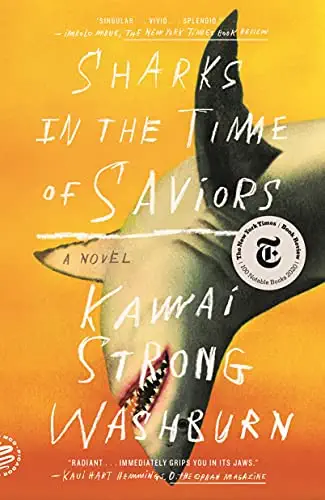

Sharks in the Time of Saviors by Kawai Strong Washburn
Noa is a legend. When he was 7, he fell into the Pacific—only for a shark to bring him back, gently in its jaw. His parents hope that his legendary status will help them pay the bills by somehow becoming great someday. The problem? There are two other Flores children. This is a vivid novel not just about a family and three siblings destined to find their (difficult) way forward, but also about Hawaii, from its people to the imperialism and tourism that’s scarred it. The prose is rich, and the story of the family and their islands is extremely effective and emotional in all the right ways.


We Are Okay by Nina LaCour
This book somehow makes me cry every time despite being relatively compact, and even though I always know how it ends. Marin hasn’t spoken to her best friend, Mabel, since she left California for her new, cold college town. She’s still smarting from the grief of losing her grandfather, and she’s trying to outrun both that pain and the breathtaking anxiety that haunts her. But now it’s winter break, and Mabel is coming to visit, and she’s going to bring everything with her, good and bad, that Marin needs to confront. This book about grief, anxiety, and about all the ways people show love, is a YA contemporary that will easily break you and put you back together again.
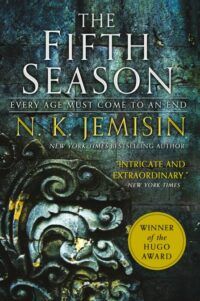

The Broken Earth Trilogy by N. K. Jemisin
Okay, this one is cheating a little. It’s a whole series. And I know, I know, the investment is high. But N. K. Jemisin’s Broken Earth trilogy is lauded across the board—and no story has broken me apart and put me back together, again and again and again and again, quite like this one. It all begins when Essun discovers that her husband has killed their son and kidnapped their daughter after finding out that she, and her daughter, are orogenes, people labeled as dangerous who can control earthquakes and tectonic energy. From there spans an incredible fantasy epic that centers on one, technically small journey: that of a mother desperate to find and rescue her daughter.
Want some more? Check out this list of romance novels that can break your heart and put it back together, this list of 12 books to make you ugly cry, or this list of quietly sad, contemplative books to make you feel something.



